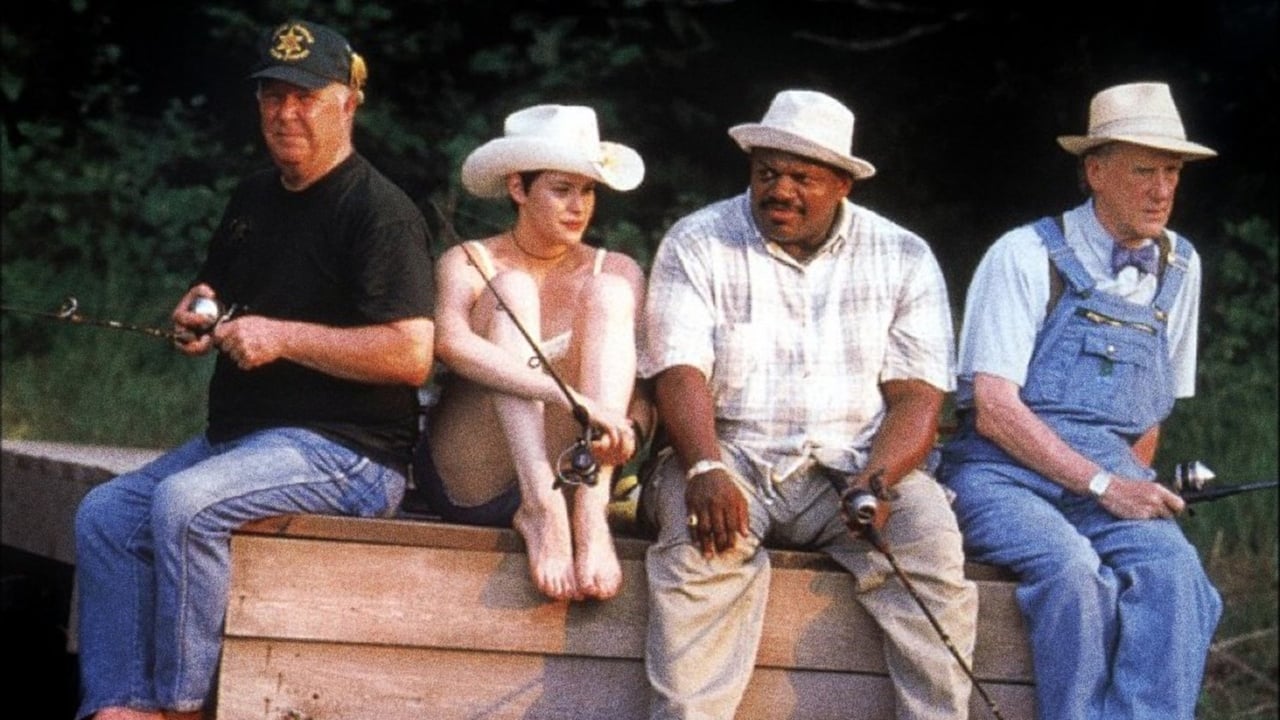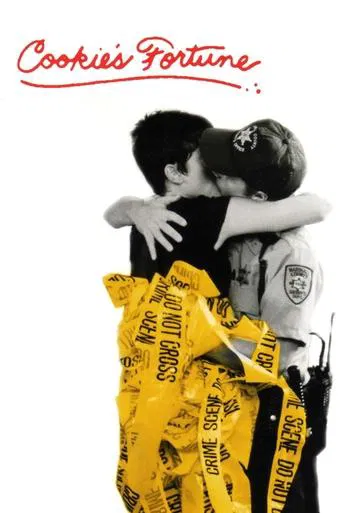

Waste of time
... View MoreAs Good As It Gets
... View MoreLet me be very fair here, this is not the best movie in my opinion. But, this movie is fun, it has purpose and is very enjoyable to watch.
... View MoreThis movie tries so hard to be funny, yet it falls flat every time. Just another example of recycled ideas repackaged with women in an attempt to appeal to a certain audience.
... View MoreI must say this ensemble effort doesn't begin too promisingly -- another glimpse of oddity in a small Southern town, people with names like Jewel Mae and Otis and Lester, something along the lines of Beth Henley's "Crimes of the Heart," which couldn't be saved even by my own sterling performance.And it is a little casual in establishing its characters. One wonders where the hell it intends going. Patricia Neal does a fine job with the role of the decrepit old "Cookie" Orcutt in the opening scenes. Neal is old but not THAT old and the talent behind the performance still glows under the crusted patina. But then so does everyone else's, and it's a good cast.Basically the plot is thus: Cookie, knowing she'll join her husband in heaven, cheerfully shoots herself in the head. Two younger cousins -- the too-clever Glenn Close and the exceedingly dumb Julianne Moore -- discover the body and decide to make it look like a murder, suicide being too much of a disgrace for the family to bear.Then the plot gets off the ground in its casual, laid-back, Mississippian way, kinda like a sleepy dog rousin' itself to slink off the dusty road so the universal harvester can chug past. It's too twisted to detail but there were several times I laughed out loud. "Crimes of the Heart" only got one laugh.The gags come not just from Anne Rapp's screenplay but from Altman's direction as well. A semi-serious criminal interrogation goes on in the foreground while in the background two officers marvel at the dimensions of a stuffed catfish on the wall. Glenn Close manages to be caught with her hand in the cookie jar -- literally.I won't go on about it. It's a relaxing and amusing fairy tale.
... View MoreWe can pretty much always expect something good from Robert Altman, and "Cookie's Fortune" doesn't disappoint. Focusing on a suicide in a Mississippi town and how it reveals some secrets about various people, they make the most of everything. Camille Dixon (Glenn Close) is a character of her own: when she sees that her aunt Cookie (Patricia Neal) has taken her own life (the old woman wants to rejoin her late husband), she tries to make it look like a murder, claiming that only crazy people commit suicide; watching the movie, anyone would have to agree that Camille's the craziest person in the movie.I will assert that this is Charles S. Dutton's best movie yet. As Cookie's caretaker who gets charged with the murder, he shows himself as strong, but not ridiculous. Julianne Moore, Liv Tyler, Chris O'Donnell, Ned Beatty, Courtney B. Vance and Lyle Lovett also have some great lines. The movie mainly goes to show that despite the racism in the South, white people and black people have a lot more exposure to each other than in the rest of the country. Really good.
... View MoreDirector Robert Altman took up this film,and one might question why an auteur who's rep is for more intense and cutting work(M*A*S*H,The Player and Short Cuts among them)would want to helm a film story that is as relaxed and pleasantly humored as Cookie's Fortune.This ensemble piece(Altman seems lost WITHOUT a large cast to work with),centers around the Duvall family of Holly Springs,Mississippi, mostly with sisters Camille(hyperventilating Glenn Close) and Cora(Julianne Moore,fantastic as uncharacteristically dull and child-like here) and their Aunt,the Cookie in the title(played with nutty joy by veteran actor Patricia Neal). When Cookie kills herself in the belief she'll reunite with her husband,Camille decides that rather than to shame the family name--she believes only "crazy" people commit suicide--she'll make the suicide look like a homicide. When Cookie's longtime friend,a good-natured local sort(Charles Dutton,great actor with a great story himself) is implicated somehow,the only person in the small,sleepy town that seems to be okay with this situation,or even vaguely kid herself to Believe it is Camille.The sub-story of the love-relationship budding between an actor-wannabe who is a sheriff's deputy(Chris O'Donnell) and the black sheep of the Duvall family(Liv Tyler) seems to be almost vestigial and lacking much purpose here. Supporting turns by Ned Beatty(as a skeptical sheriff who is friends with Dutton's character),MAtt Malloy,Lyle Lovett and Courteny B.Vacne are used to prop up the story to adequacy. Anne Rapp's story is given a slow,sweet, eccentric pace,which seems perfect for the part of America it's set in. I saw this no fewer than three times on video,after having missed it in theatrical release(which was very short) and found myself charmed by it every time. If you like your movies character-centered and just a wee bit strange,I think you'll dig this one.
... View MoreSome good acting, some interesting subplots, but a banal main story makes this film something near nadir, If you like actors doing their thing, and you don't care about interesting plots, then this is your kind of movie, but in any other case just skip it.Of the actors, I liked specially Patricia Neal, Glenn Close was a little too much 'theatrical' and people like Lyle Lovett, Chris O' Donnel and Liv Tyler were just ok. Julianne Moore was as good as ever.The ending leaves me with a bitter taste in my mouth, maybe because the characters didn't seem real, or either because the improbable plot, I don´t know...
... View More